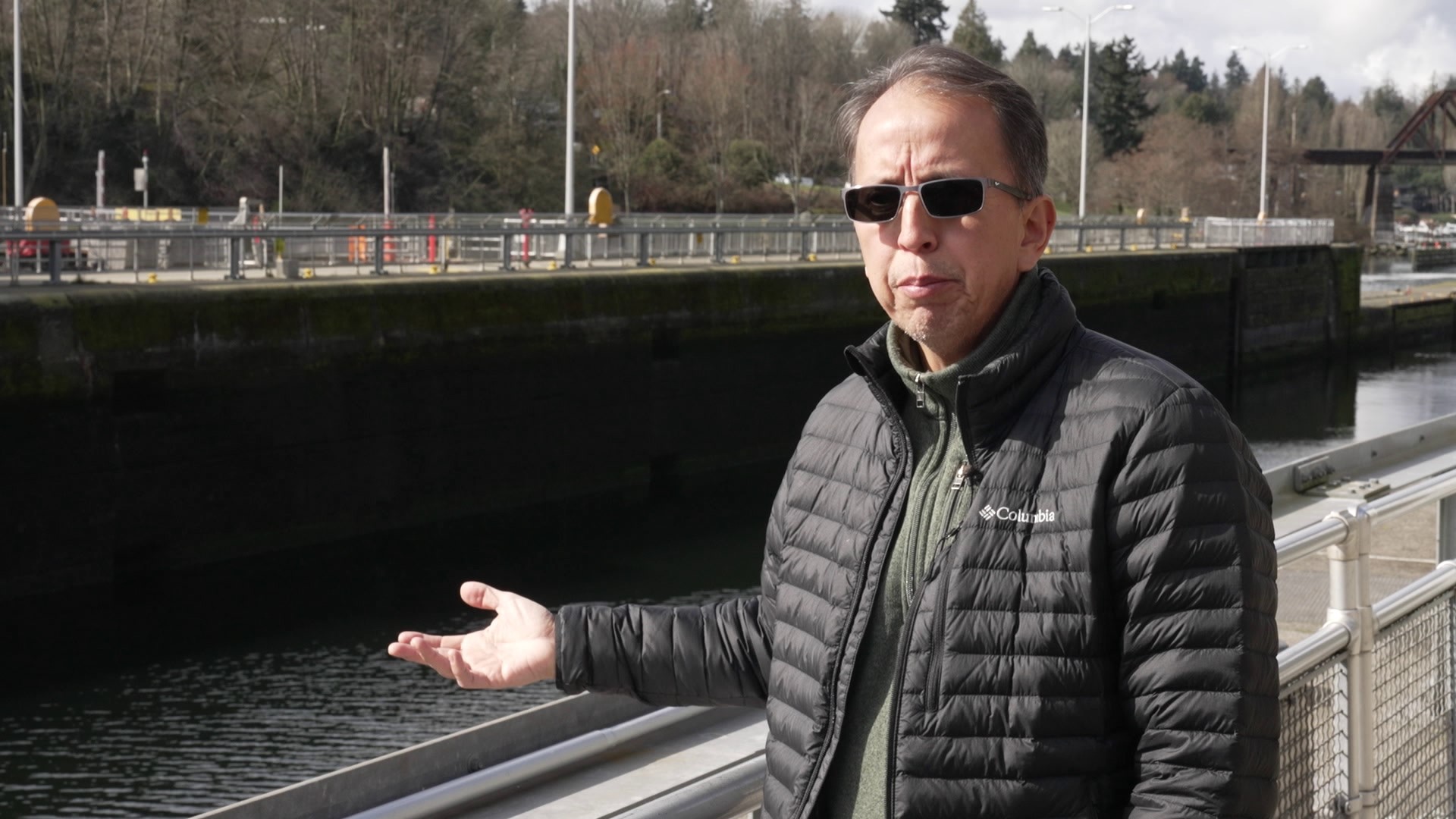SEATTLE — Boats pass through Seattle's Ballard Locks.
So do the beings that Native Americans who live in the area consider family members.
"To us the salmon are actually a relative. We consider them a relative of ours, and we treat them with honor and respect,” said Warren KingGeorge, a historian for the Muckleshoot Indian Tribe. He once had a job at this place, counting fish.
"Spent many hours in there,” he said, pausing next to one of the concrete clad offices overlooking the massive mechanical gates that help boats pass from salt water to fresh. Engineering that helps man do what salmon have been doing for ages.
The Locks might be an engineering marvel, but the real wonder here are the fish that make it through the rushing water and concrete channels.
“So look around you, and look at how developed this area is. Yet these salmon are so resilient," said KingGeorge. "These salmon are so driven to get to their spawning grounds that they're willing to endure all of these inconveniences that we as humans have put in front of them.”
Those inconveniences have taken their toll. When The Locks - officially named the Hiram M. Chittenden Locks - opened in 1917 Lake Washington's water level dropped. The Black River, a drainage where salmon and Native American villages once thrived, vanished altogether.
Today, the Sockeye Salmon run that climbs the fish ladder on its way to the Cedar River Watershed is still a source of sustenance and culture for the Muckleshoot tribe. But since its traditional waterways have changed, the run is in danger of extinction.
Despite the concrete and commerce - nature is resilient. KingGeorge notices a handful of huge nests perched in trees across from the Locks and appreciates what it means.
"Looking at a rookery of great blue heron, called sbəq̓ʷaʔ (s-bah-qwah) in our language. It's nice to see them, they're a good indicator that this place is starting to get a little more healthy," KingGeorge said, adding that heron eat fish, so there are some present in this place. Just not as many as there once were.
KingGeorge says a visit to this popular attraction is a chance to slow down, and listen to his relatives. Before it's too late.
"These salmon you know, they're trying to tell us something. Trying to send us a message that what you humans are doing is not healthy and not good," KingGeorge said. "We need to make some changes so that everyone and everything can survive here peacefully."
Sponsored by The Muckleshoot Indian Tribe
KING 5's Evening celebrates the Northwest. Contact us: Facebook, Twitter, Instagram, Email.

